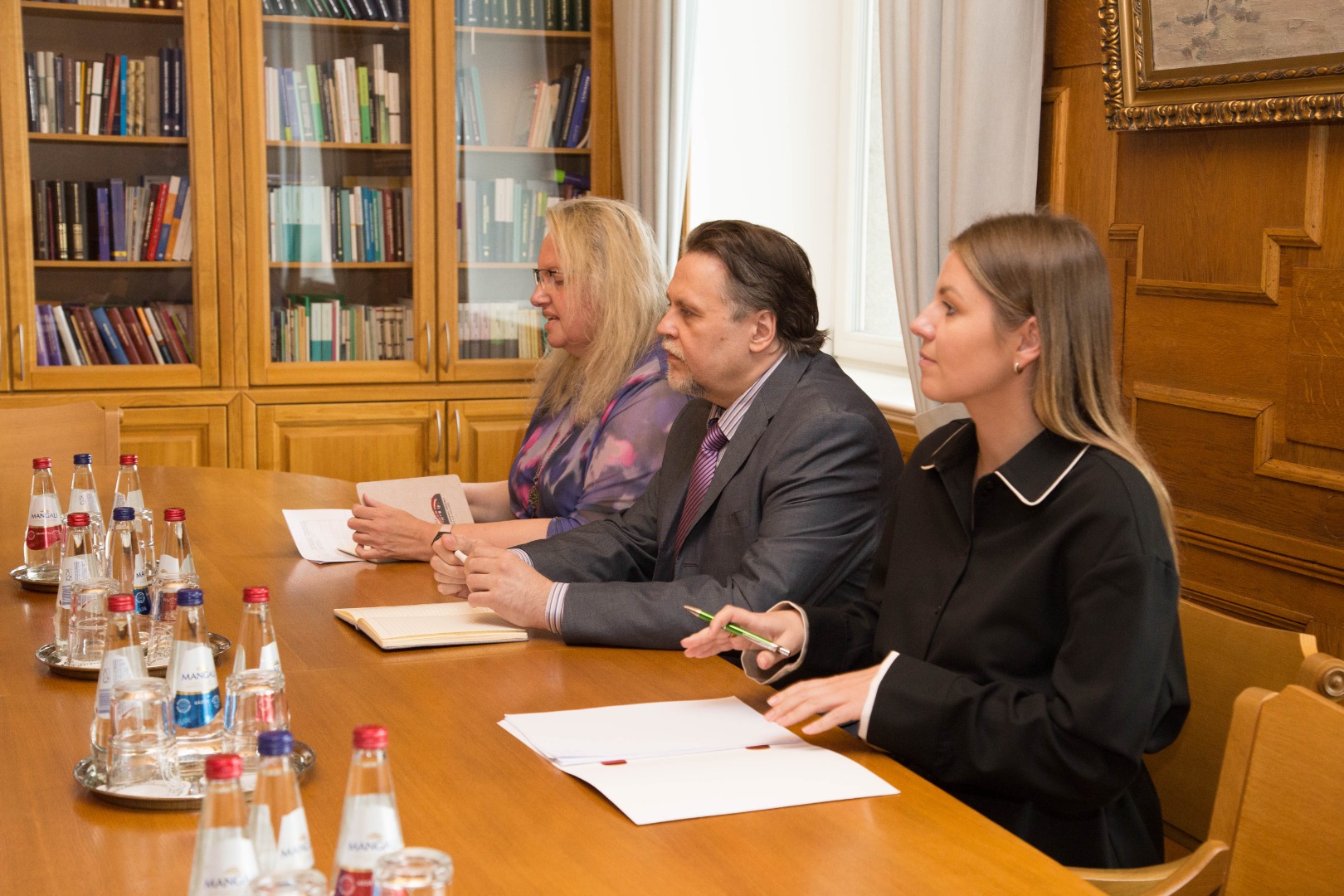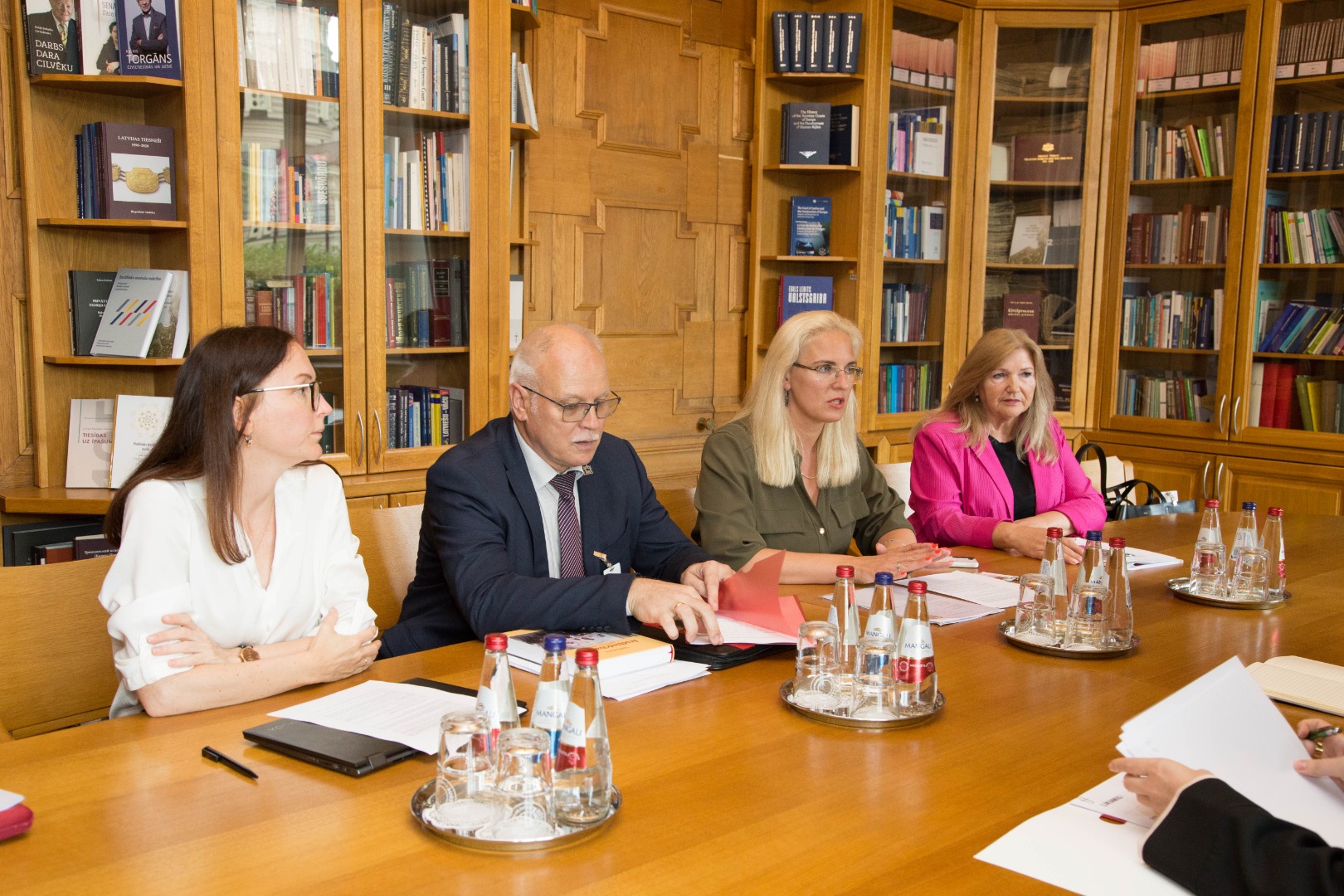President of the Supreme Court and Free Trade Union Confederation of Latvia representatives address issues of sick-leave certificates in the court system
7. augusts, 2025.
On 6 August, the President of the Supreme Court, Aigars Strupišs, met with the Vice Presidents of the Free Trade Union Confederation of Latvia, Gita Oškāja and Anda Grīnfelde, the European law and policies expert of the Confederation, Nataļja Preisa, and the Chair of the Latvian Health and Social Care Workers' Trade Union, Valdis Keris, to discuss issues related to the issuance and control of sick-leave certificates.
During the meeting, the representatives of the Confederation emphasized that, in their view, concerns about the lack of control over sick-leave certificates are understandable, but the statistics available to them do not support this. The representatives of the Confederation presented Strupišs with statistics from an informative report prepared by the Ministry of Health, which shows that over the last four years, more than one million sick-leave certificates have been issued in Latvia each year, but the Health Inspectorate only examines complaints about approximately 0.03-0.04% of them.
The representatives of the Confederation also stressed that significant improvements could be achieved with the tools already available, such as more active involvement of the Health Inspectorate.
Whereas, Aigars Strupišs pointed out that his goal is not to radically reform the issuance procedure of sick-leave certificates or to restrict the issuance of sick-leave certificates to genuinely ill people in any way. However, there is a tendency to use sick-leave certificates to delay the examination of cases in courts.
As an example, the President of the Senate referred to a case in which a large number of defendants in criminal proceedings submitted sick-leave certificates one after another, delaying the proceedings. In another case, one defendant submitted four sick-leave certificates in two years, resulting in the case still not being heard on its merits, although there is information that the defendant in question has participated in at least two unrelated civil cases during this time.
With these examples, Aigars Strupišs emphasized that, although the statistics provided by the Free Trade Union Confederation of Latvia cannot be questioned, the situation in the court system is different because people have greater motivation to delay the proceedings. Furthermore, the Confederation’s own data shows that, for example, in 2024, inspections initiated following submissions by law enforcement agencies revealed problems in almost a quarter of cases, which is well above average.
At the conclusion of the conversation, both sides agreed to continue active dialogue and, possibly, to participate in broader discussions on legal issues affecting trade unions in the future.
Kārlis Arājs
Communication adviser of the Supreme Court
Telephone: +371 67020302
E-mail: karlis.arajs@at.gov.lv




